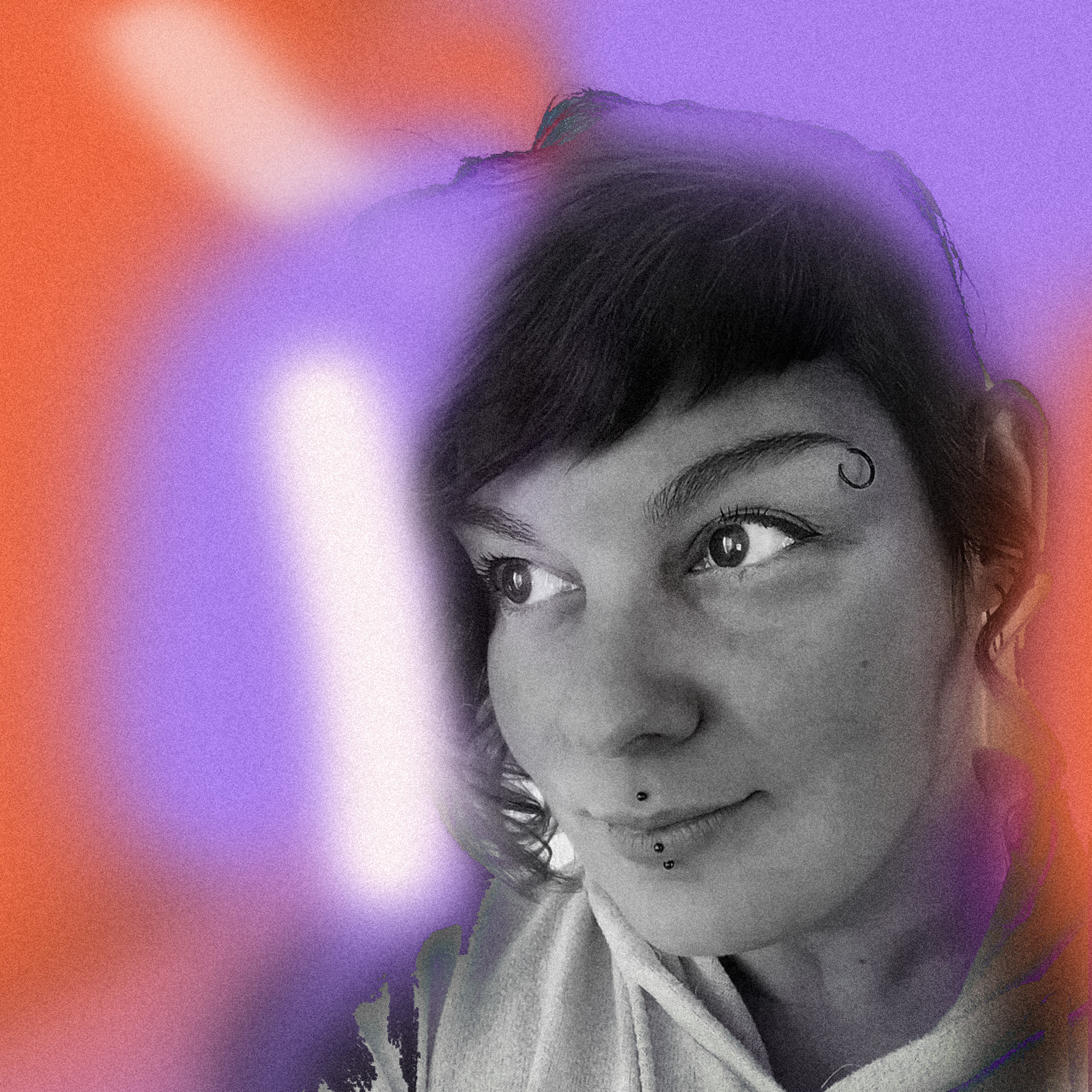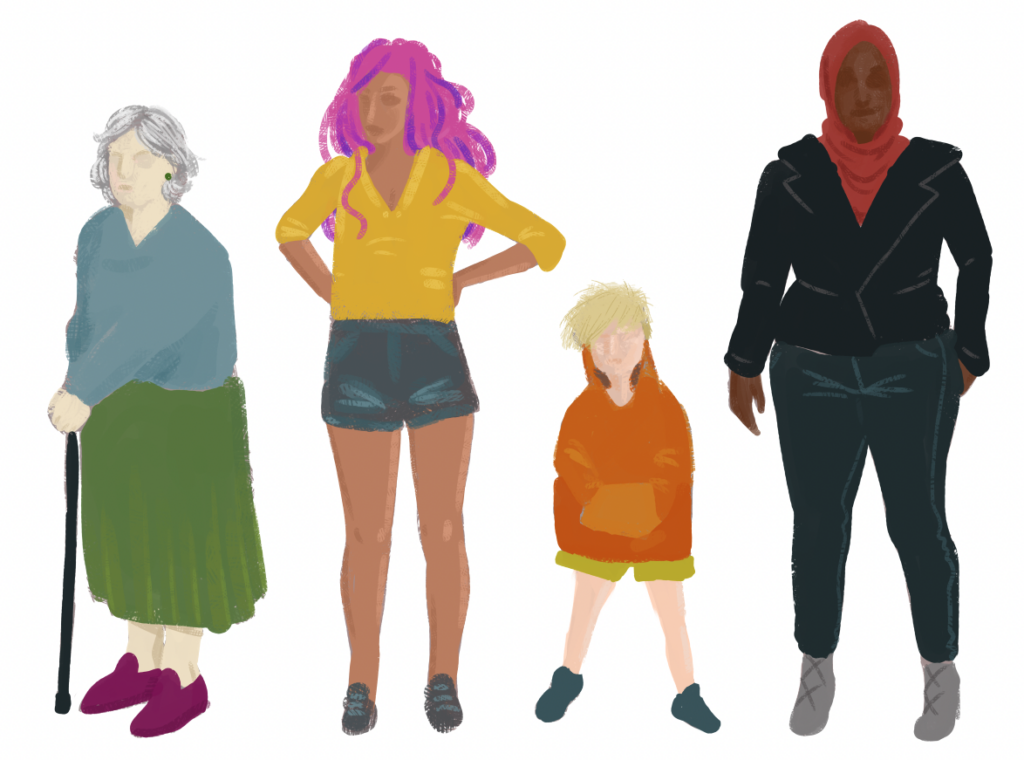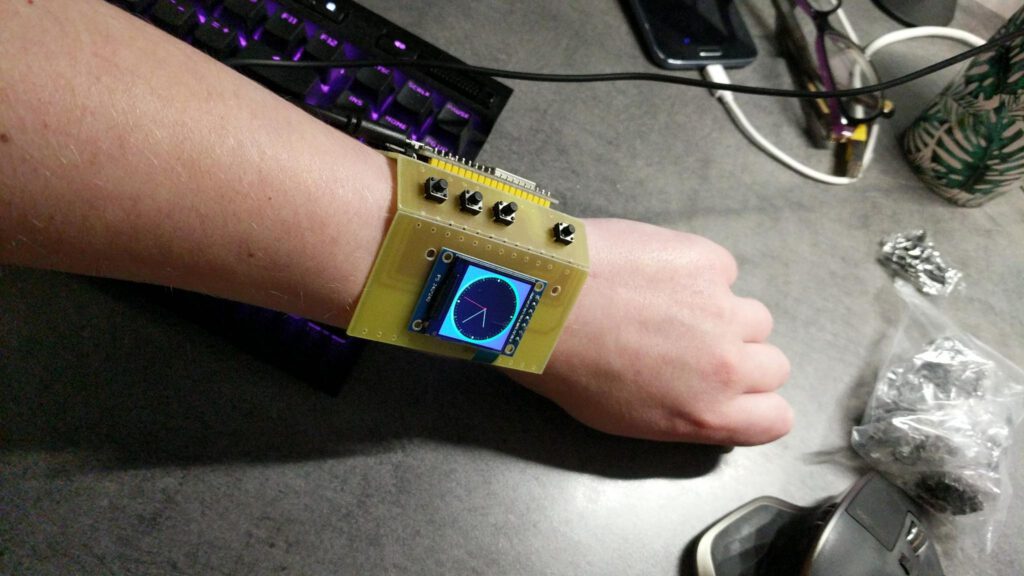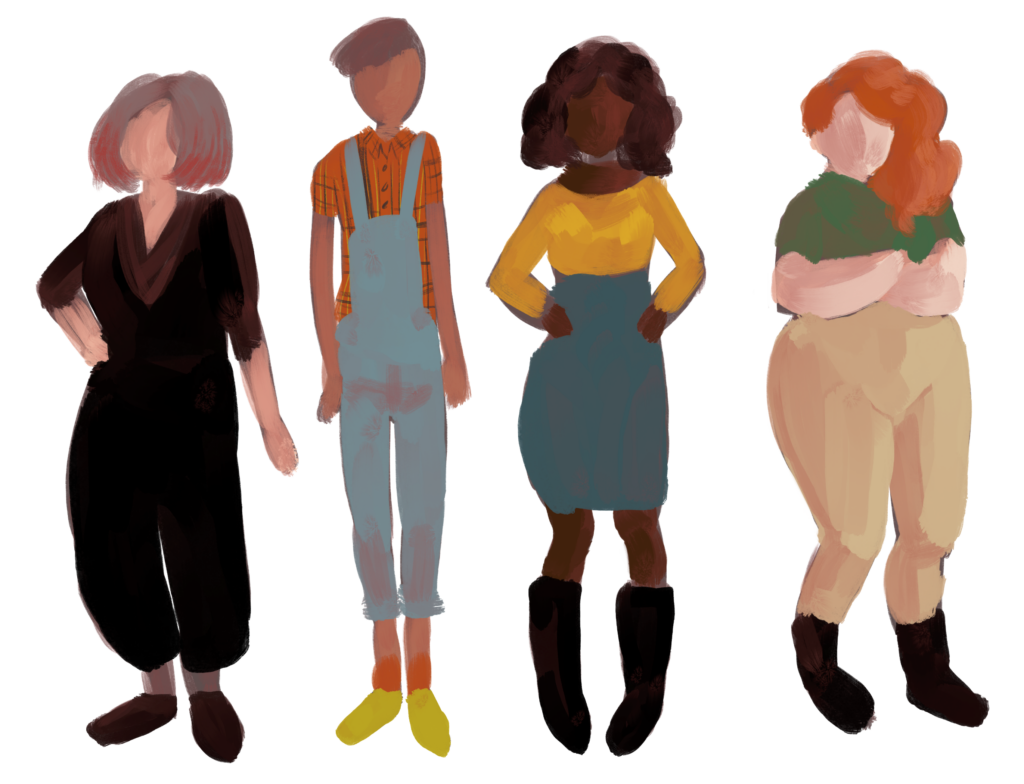La Résille
_lila*

La Résille (literally: “fishnet”) is a collective sci-fi work based on imagination
workshops started online during 2020. These workshops offer to project
people in an uchronic world where women/gnc haven’t been ejected from IT in the 70’s. It allows us to challenge standards around tech communities and strongly empower us to imagine desirable digital futures. We also develop material/design from the workshops and publish the projects on our website.
What will you be working on during the fellowship?
We are three people working as volunteers to do our workshops, to produce most of the material and to update our website. We want to redesign the website so participants can more easily project themselves into La Résille. As we are receiving more and more requests from feminist groups and universities, we want to rework the workshops to make them easier to set up. Then we could offer more workshops in the long term. We also would like to set up a non-profit organisation to be able to pay ourselves.
To what future do you aspire?
Our aim is to enable participants to create user-friendly, low-tech, feminist and anti-capitalist tools. Our workshops take into account the political dimension of the digital tools that structure our lives by ensuring that they remain accessible and that they don’t reproduce patterns of oppression against women, lgbtqia+ and marginalised people. We reject the idea of techno-solutionism and question human bias in regards to technology.
What does being a risktaker mean to you?
Being a risktaker means to try new ideas to share the word of our communities, those who are not or hardly heard, to promote the experience of minorities with mutual learning, to find out how to build in collaboration new horizons against the oppressions that we undergo. It means that we have to try even if we “fail”, because it’s part of the learning and creative process and that’s exactly how we learn. It also means taking a step forward to address challenging issues and taking time to document this important work.
Interview
1. What is the question we should definitely ask you (and how would you answer it)?
Actually, there are two questions you need to ask:
Do you have fun? Yes!
Can we make our own texts, pictures, sounds, videos,…., based on the world of la Résille?
YES! You can simply send your creations to: contact@laresille.fr
2. You work in a collective called La Résille (literally: “fishnet”). How would you characterise the connection between the image of the “fishnet” and your (feminist) work practice? And could you describe the practices and approaches – within your team and in collaboration with partners?
La Résille was the most obvious name when we were looking for ideas for this collective since it’s a derivative of “network” AND a clothing accessory often connoted as “feminine” and sometimes even vulgar. To us, it was a good way of re-appropriating it with this formidable double meaning!

For us, it’s important to create a space for and with minorities and, therefore, people oppressed by capitalism, patriarchy, racism, transphobia, ableism and so on. These spaces aren’t perfect, and we try to be conscious of our position, but we strive to bring a medium that gives back power, confidence and enthusiasm made by and for our community.
3. Much of your work is based on the ideas and thoughts of feminist thinkers. Which references or sources have been most meaningful to you? And how do these positions influence your work?
We can refer to Donna Harraway’s string-game theory and Ursula K. Le Guin’s basket- fiction theory, as well as the work of Les Ateliers de l’Antémonde, Saul Pandelakis, Becky Chambers…
We aim to make sci-fi that feels like us, that moves away from the archetypes of the lonely white hero in a megalopolis corrupted by corporations and technology everywhere. We want to grasp reality and look to the future with hope, despite the complex issues and obstacles that lie ahead. We can’t do that without questioning the relationships of power and domination that run through us and how to understand and analyse them to find better-shared strategies to overcome them. We want to talk about tools that emancipate and empower us, that are user-friendly in the sense of the “conviviality” described by Ivan Illich.
4. In your workshops, you explore alternative realities and what-ifs by projecting the participants into uchronic worlds. Could you elaborate on the concept of “uchronia” a bit more? How can we imagine the process of such a workshop?
With uchronia, we can choose a historical event, modify it and then imagine a new timeline based on it.
In our case, we’ve kept the fact that women and gender minorities were massively involved in IT in the ’70s and then assumed that they weren’t subsequently thrown out of it. What happens in this alternate history in 2023? This is the imaginative exercise we invite participants to undertake.
We usually divide the workshops into two parts: the first one being based on the participants’ construction of their own story as an individual (what’s their name, their age, do they live with other people, what’s their typical day like, do they have projects, a job, a home, a pet, what’s their hobbies, …) and the second part of the workshop focusing on the participants’ interpersonal connections/relationships: how do they know each other? Do they live in the same place? Are they from the same family? Do they know each other through la Résille? Or not at all?
Most of the time, after the workshops, we’re the people (Mélissa, Esther and I) who collect the material imagined during the sessions and create a graphic, written and audio supports (etc.), and put them online on the website: https://laresille.fr/

5. The participants in your workshops not only engage with alternative worlds and counter- narratives but also envision equal and more diverse futures worth living. What is the most remarkable insight you have gained for yourself through this form of future work?
The most amazing thing that happens is that people usually come first with doubts, reluctance, and feeling tired — in a word: a lot of apprehension. Then, at some point during the workshop, a kind of “click” occurs, and they end up finding the links that connect them and become enthusiastic about creating new things together. At the end of the workshops, they’re often full of smiles and motivation! Every time, we feel like we’re witnessing a magical moment! And we experience it with them because sometimes we also participate in the same way as the others, and all that energy gives us a lot of strength and self-confidence. It’s a true delight. We’re all enjoying it so much!
6. Science fiction is an essential part of your workshops. What makes science fiction so powerful when it comes to questioning the status quo and the process of world-building?

Science fiction is a fascinating genre, allowing us to anchor ourselves in a universe that is close to us and offers an escape through our imagination. It serves as a medium that allows us to empower ourselves by imagining important political issues that can affect us personally.
7. How do you, as a fellow, perceive the Risktakers Fellowship so far?
The thing I appreciate the most so far is that we can talk to and discover new, amazing people working on such great projects. I feel humble and flattered to be alongside them in this Fellowship. It feels like a good opportunity to have real support for our work at the present.
